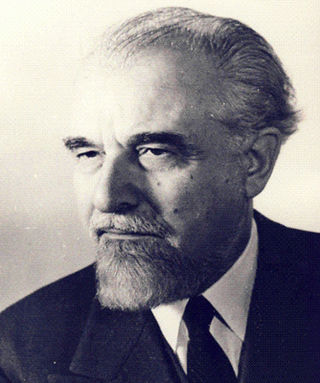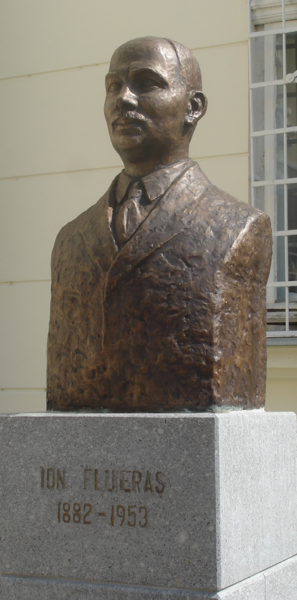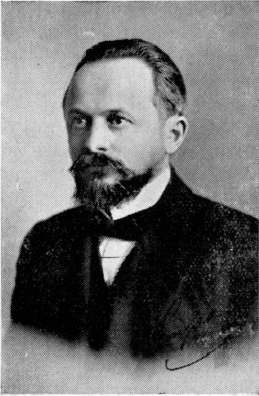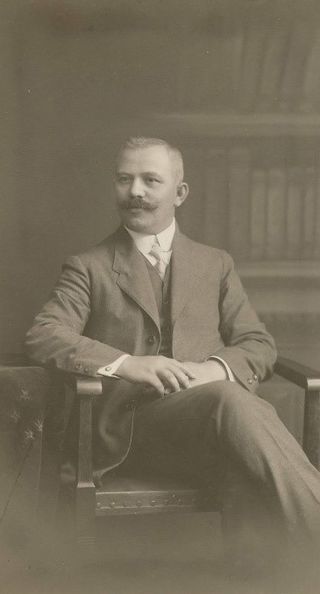The National Peasants' Party was an agrarian political party in the Kingdom of Romania. It was formed in 1926 through the fusion of the Romanian National Party (PNR), a conservative-regionalist group centred on Transylvania, and the Peasants' Party (PȚ), which had coalesced the left-leaning agrarian movement in the Old Kingdom and Bessarabia. The definitive PNR–PȚ merger came after a decade-long rapprochement, producing a credible contender to the dominant National Liberal Party (PNL). National Peasantists agreed on the concept of a "peasant state", which defended smallholding against state capitalism or state socialism, proposing voluntary cooperative farming as the basis for economic policy. Peasants were seen as the first defence of Romanian nationalism and of the country's monarchic regime, sometimes within a system of social corporatism. Regionally, the party expressed sympathy for Balkan federalism and rallied with the International Agrarian Bureau; internally, it championed administrative decentralization and respect for minority rights, as well as, briefly, republicanism. It remained factionalized on mainly ideological grounds, leading to a series of defections.

Vintilă Ion Constantin Brătianu was a Romanian politician who served as Prime Minister of Romania between 24 November 1927 and 9 November 1928. He and his brothers Ion I. C. Brătianu and Dinu Brătianu were the leaders of the National Liberal Party of Romania, founded by their father, Ion C. Brătianu.

Ștefan Voitec was a Romanian Marxist journalist and politician who held important positions in the state apparatus of Communist Romania. Debuting as a member of the Socialist Party of Romania in his late teens, he formed the Socialist Workers Party of Romania, then the United Socialist Party, while also engaging in human rights activism and advocating prison reform. The mid-1930s brought him into contact with the Romanian Communist Party, with whom he formed tactical alliances; however, he rejected its political line, and was for a while known as a Trotskyist. In 1939, he joined the consolidated Social Democratic Party, which reunited various socialist groups outlawed by the National Renaissance Front. During World War II, despite ostensibly withdrawing form political life to do research, Voitec served as the party's Secretary and joined the anti-fascist underground. Some reports suggest that he was also a committed anti-communist, critical of the Soviet Union to the point on endorsing war in the East. As a war correspondent, Voitec made contributions to Nazi propaganda, an issue which made him vulnerable to blackmail in later decades.

IoanFlueraș was a Romanian social democratic politician and a victim of the communist regime.

Ioan Lupaș was a Romanian historian, academic, politician, Orthodox theologian and priest. He was a member of the Romanian Academy.
Camil Bujor Mureșanu was a Romanian historian, professor and author.

A total of 41 counties, along with the municipality of Bucharest, constitute the official administrative divisions of Romania. They represent the country's NUTS-3 statistical subdivisions within the European Union and each of them serves as the local level of government within its borders. Most counties are named after a major river, while some are named after notable cities within them, such as the county seat.

Gheorghe V. Buzdugan was a Romanian jurist and politician.

The League Against Usury was a single-issue, mainly agrarian, political party in Romania. Formed in late 1929 as a political answer to the Great Depression, it involved itself in the fight against "usury", bringing together politicians on all sides of the political spectrum. Its prominent backers and activists included leftists such as Nicolae L. Lupu and Ion D. Isac, independents such as Pantelimon Erhan, Stefan Frecôt, Dumitru Pavelescu-Dimo, George Tutoveanu and Eraclie Sterian, and some affiliates of the interwar far-right. It also formed a unified cacus with Jean Th. Florescu's Omul Liber faction and with Simion Mândrescu's National-Radicals. The LCC channeled protest votes, and seemed to have gained sweeping popular support during the first year of its existence. It competed in this with fascist movements such as the Iron Guard, ambiguously supporting economic antisemitism—while being generally welcoming of ethnic minorities other than Jewish.

Dumitru Almaș was a Romanian journalist, novelist, historian, writer and professor. His prolific output included children's literature, historical novels and textbooks. He was honored by both the Romanian Writers' Society and the subsequent Writers' Union of Romania. He also served as a member of the board of Society for Historical Sciences of Romania.

Ion Lapedatu was finance minister of Romania (1926–1927), Governor of the National Bank of Romania (1944–1945), and honorary member of the Romanian Academy.
An equivalent of presidential election was held in the Socialist Republic of Romania between 6-9 December 1967.

Victor Spinei is Emeritus Professor of history and archaeology at the Alexandru Ioan Cuza University, member and vice president of the Romanian Academy. He is a specialist on the history of Romania and the Romanian people in the Early and High Middle Ages, the history of migratory peoples in Eastern and Southeastern Europe during this period, and the production and circulation of cult objects in Eastern and Southeastern Europe during the Middle Ages.

Anastasie Fătu was a Moldavian and Romanian physician, naturalist, philanthropist and political figure, a titular member of the Romanian Academy and founder of Iași's Botanical Garden. Of lowly origins, he benefited from the meritocratic program instituted by Moldavia's government in the 1830s, and went on to study law at the University of Vienna, with hopes of becoming a political economist. After graduating, he changed his professional path, and trained in medicine at the University of Paris. Recognized for pioneering contributions in cardiology, pediatrics, obstetrics and balneotherapy, he was also an early speaker for public health and social medicine, as well as an educational theorist and textbook author. Fătu's career as a professor of natural sciences took him to the Gregorian Institute, the Socola Monastery school, and ultimately Iași University, where he took steps to create a regional medical school.

Alexandru I. Lapedatu was Cults and Arts and State minister of Romania, President of the Senate of Romania, member of the Romanian Academy, its president and general secretary.

Pyotr Zakharovich Bazhbeuk-Melikov, also Bachbeouk-Melikoff, Bazhbeuk-Melikyan or Bazhbeuk-Melikishvili, was an ethnic Armenian politician and agronomist in Bessarabia. Educated in Tiflis Governorate and then in France, he had various administrative offices in the Russian Empire and the Russian Republic. He presented himself in the November 1917 election for the Russian Constituent Assembly as an affiliate of the Constitutional Democratic Party. Failing in this bid, Bazhbeuk was instead welcomed as an Armenian delegate by the Bessarabian assembly, or Sfatul Țării, just before the proclamation of a Moldavian Democratic Republic. Loyal toward the latter, he spoke out against Bolshevik infiltration, and asked for an intervention by the neighboring Kingdom of Romania. Though he welcomed the Romanian military expedition of early 1918, he found himself opposed to the subsequent union between Bessarabia and Romania, reverting to Russian monarchism.
Events from the year 1947 in Romania. The year saw the abdication of Michael I of Romania and foundation of the Romanian People's Republic.
Events from the year 1961 in Romania. The year saw the creation of the title of President of the State Council for the de facto head of state. The first office holder was Gheorghe Gheorghiu-Dej, who was already General Secretary of the Romanian Communist Party.

The United Socialist Party was a political party in Romania, formed in 1933 through the merger of the Independent Socialist Party (PSI) and the Socialist Party. PSU was a small party but played an important role within the left-wing movement, especially through its repeated attempts to promote unity between the Communist Party (PCR) and Social Democratic Party (PSD). PSU was affiliated with the London-based International Bureau of Revolutionary Socialist Unity.














